What Is Oil Tanned Leather?
Oil-tanned leather technically doesn't exist, but it's the term that people use for leather that's finished a particular way. There's definitely oil involved, but the oil has nothing to do with tanning.
Oiled leather uses an oil treatment in the finishing process, which gives the leather some desirable qualities for some uses. It also gives leather a slight glossy appearance that just gets better with age, like our 1964 leather boots.
So what is "oil tanned leather," really? Why do boot companies use it? Is it a good choice for my boots? Let's talk about that.
There's No Such Thing As Oil Tanned Leather
The term "oil tanned leather" is used by a lot of different bootmakers and leather goods companies because that's the term that most people use. It's not really tanned in oil.
It's finished in oil, but it isn't tanned in oil.
Tanning is a chemical treatment that preserves leather. Leather, as you know, is skin, and like all parts of a body, will start to decompose after the animal it was a part of dies.
The tanning process stops decomposition in its tracks. The substance used for millennia for it was oak bark, which has a high concentration of tannic acids, which act as the preservative.
Chrome tanning came along more recently (in the 19th century) and does the same thing but with different chemicals.
That's what tanning is, and while there are some oils involved, it's not what people mean when they say "oil tanned."
What people mean when they say "oil tanned leather" is leather that's been bathed in oil after its been tanned and died, which is the finishing process. The leather is given a bath in hot oils, waxes and other compounds so the bath permeates it.
What an oil bath does is create a permanent coating. It protects the leather, making it a little more waterproof, but also makes it supple, makes it a little softer to the touch. Oiled leather also has the "pull up" effect, which some people love and others...not so much.
What's So Great About Oil Tanned Leather?
We're going to keep talking about "oil tanned leather" because that's the term that people are used to using, even though - as we mentioned - it isn't actually oil-tanned.
What's so great about it?
Oil-tanned leather is softer out of the box. When you first feel it, it already feels a bit broken-in; it's actually soft to the touch. Break-in doesn't take as long, and the boots start to feel really comfortable a lot quicker.
With a few years of wear, they're almost like your favorite pair of sneakers.
Oiled leathers also need a little less care. To keep them in good condition, all you really need to do is clean them with saddle soap and grease or oil them every couple of weeks. They need more frequent application of oil or conditioner, but it only takes a few minutes.
You can polish them if you want and spend lots of time getting that high mirror shine, or you can just oil them every week or two and they'll stay in like-new condition for years. Decades, even.
But they're more than strong enough for work. In fact, start naming popular work boot brands; most of them - including big names like Red Wing, Thorogood, Chippewa, Carolina and of course Nick's - all use oiled leather to make leather work boots.
Oiled leather is more than strong enough for working use, but it's easy to care for and gets incredibly comfortable with use.
Are there any downsides?
The Downsides To Oil Tanned Leather Are Mostly Cosmetic
There are some downsides to oil-tanned leather, but in terms of...basically anything that most people are going to care about...they're cosmetic.
Oil-tanned leather is pull-up leather, which some people don't like the look of. Boots made with vegetable tanned leather are gorgeous; some people just like the veg-tanned look.
Oil-tanned leather doesn't take polish as easily as vegetable-tanned or other leathers do.
You can polish them, of course, but it isn't as easy to build up the necessary layer of polish to get that high mirror shine. Veg-tanned leather, calfskin or shell leathers are a lot easier to do that with, which is why they're so popular for dress shoes and dress boots.
Those are the only real "downsides" to oil-tanned leather. You get to decide if those matter to you or not.
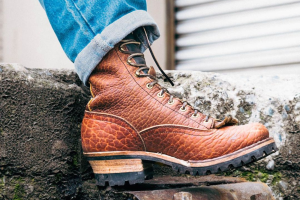
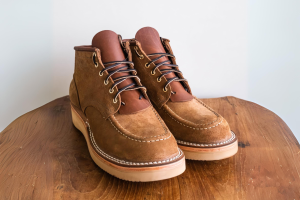
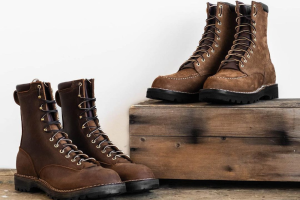
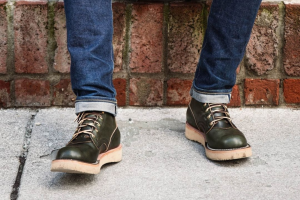
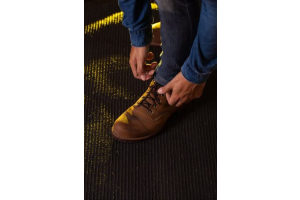
Validate your login